Introducing Neo Bengal Folk Art - a modern take on Bengal Pattachitra, inspired by Jamini Roy's work. My Illustrations feature thick and thin outlines, vivid colors, and intricate motifs. I aim to bridge the gap between the old and new, honouring our cultural heritage and pushing the boundaries of creativity, through this Art Experimentation.
Matangi Collection 01 explores the visual metaphors and visualisation of the Goddess Matangi who is the fusion of embodiment of Goddess Lakshmi, Goddess Paravathy / Durga and Goddess Saraswathi.
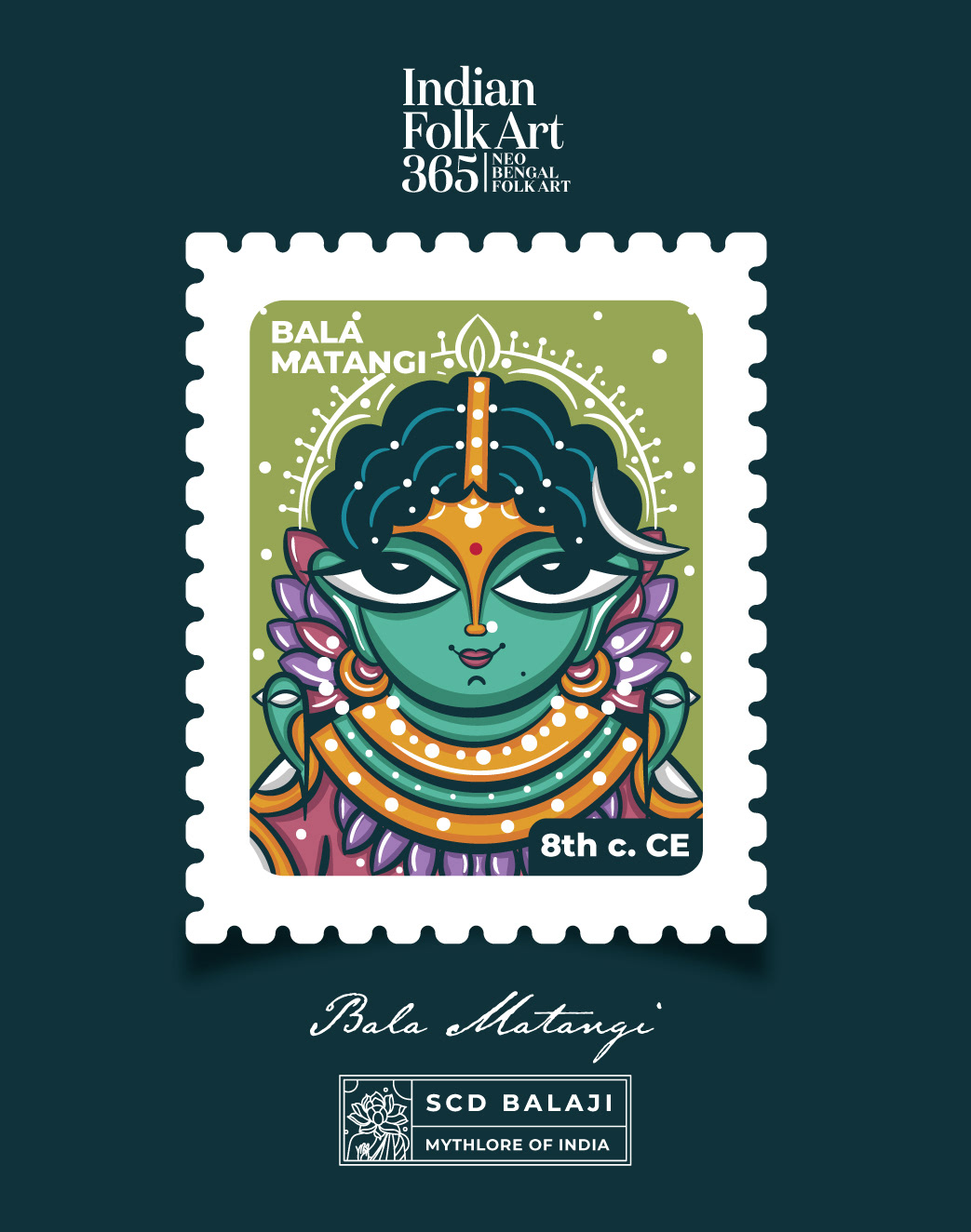
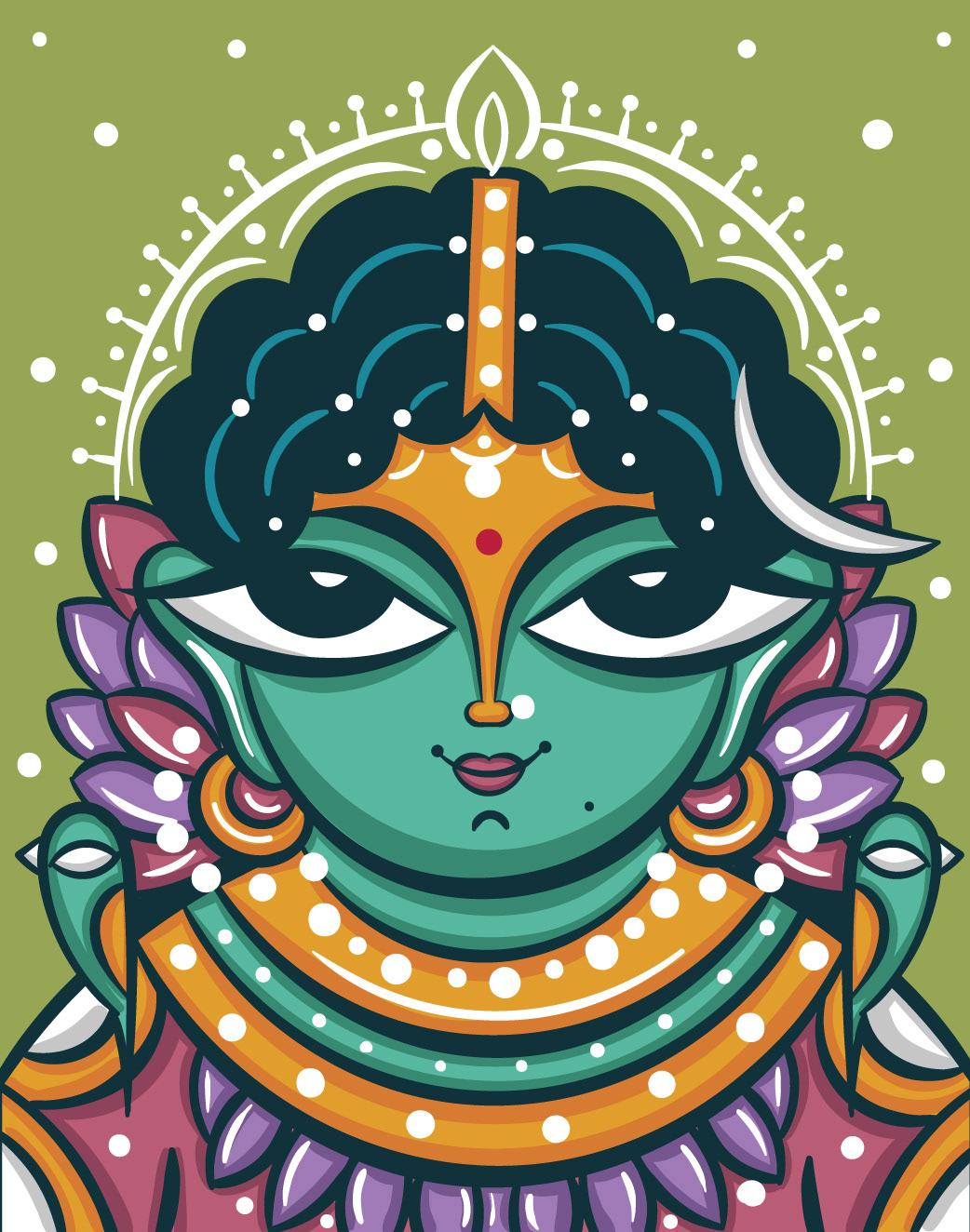
In this Matangi Goddess series, I will retell many unheard legends of Matangi and some of Indian mythology's multiverse facts.
Matanga Muni, a devotee of Lord Shiva who lived in the southern Indian forest of Kadambavanam in Madurai, is credited with inventing the seven basic notes of Indian classical music. He also played a role in the Legend of Lord Hanuman. Due to a curse, Matanga Muni could only accept food that had been tasted by a child. When Lord Shiva and Parvati visited him, they asked Hanuman to taste the food, which pleased Matanga Muni. In return, he blessed Hanuman with long life, immortality, and great powers.
Matanga Muni is revered for his wisdom, devotion and contributions to Indian classical music. Matangi is a Hindu goddess who is associated with music, knowledge, and speech. She was one of Matanga Muni's disciples and is sometimes referred to as the "outcast goddess." Matangi was sculpted as a forest dweller girl by Matanga Muni when she was still a child, known as Bala Matangi. Matangi is known for bestowing blessings related to education, speech and artistic abilities, especially upon those who are treated as outcasts and mediocrities. She is often metaphorically referred to as Matanga's daughter, which reflects the close bond between a spiritual teacher and disciple.
Matanga Muni, a devotee of Lord Shiva who lived in the southern Indian forest of Kadambavanam in Madurai, is credited with inventing the seven basic notes of Indian classical music. He also played a role in the Legend of Lord Hanuman. Due to a curse, Matanga Muni could only accept food that had been tasted by a child. When Lord Shiva and Parvati visited him, they asked Hanuman to taste the food, which pleased Matanga Muni. In return, he blessed Hanuman with long life, immortality, and great powers.
Matanga Muni is revered for his wisdom, devotion and contributions to Indian classical music. Matangi is a Hindu goddess who is associated with music, knowledge, and speech. She was one of Matanga Muni's disciples and is sometimes referred to as the "outcast goddess." Matangi was sculpted as a forest dweller girl by Matanga Muni when she was still a child, known as Bala Matangi. Matangi is known for bestowing blessings related to education, speech and artistic abilities, especially upon those who are treated as outcasts and mediocrities. She is often metaphorically referred to as Matanga's daughter, which reflects the close bond between a spiritual teacher and disciple.
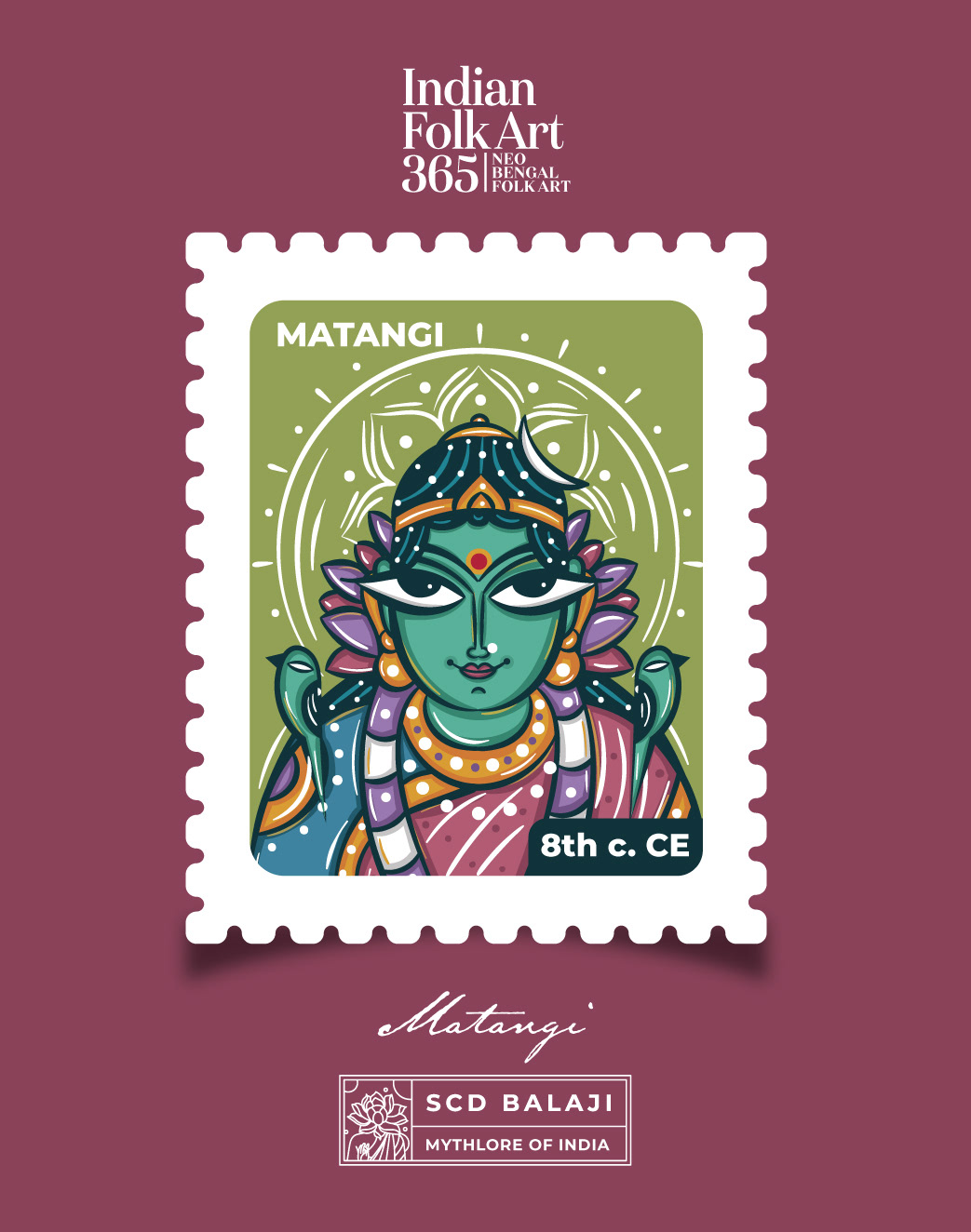
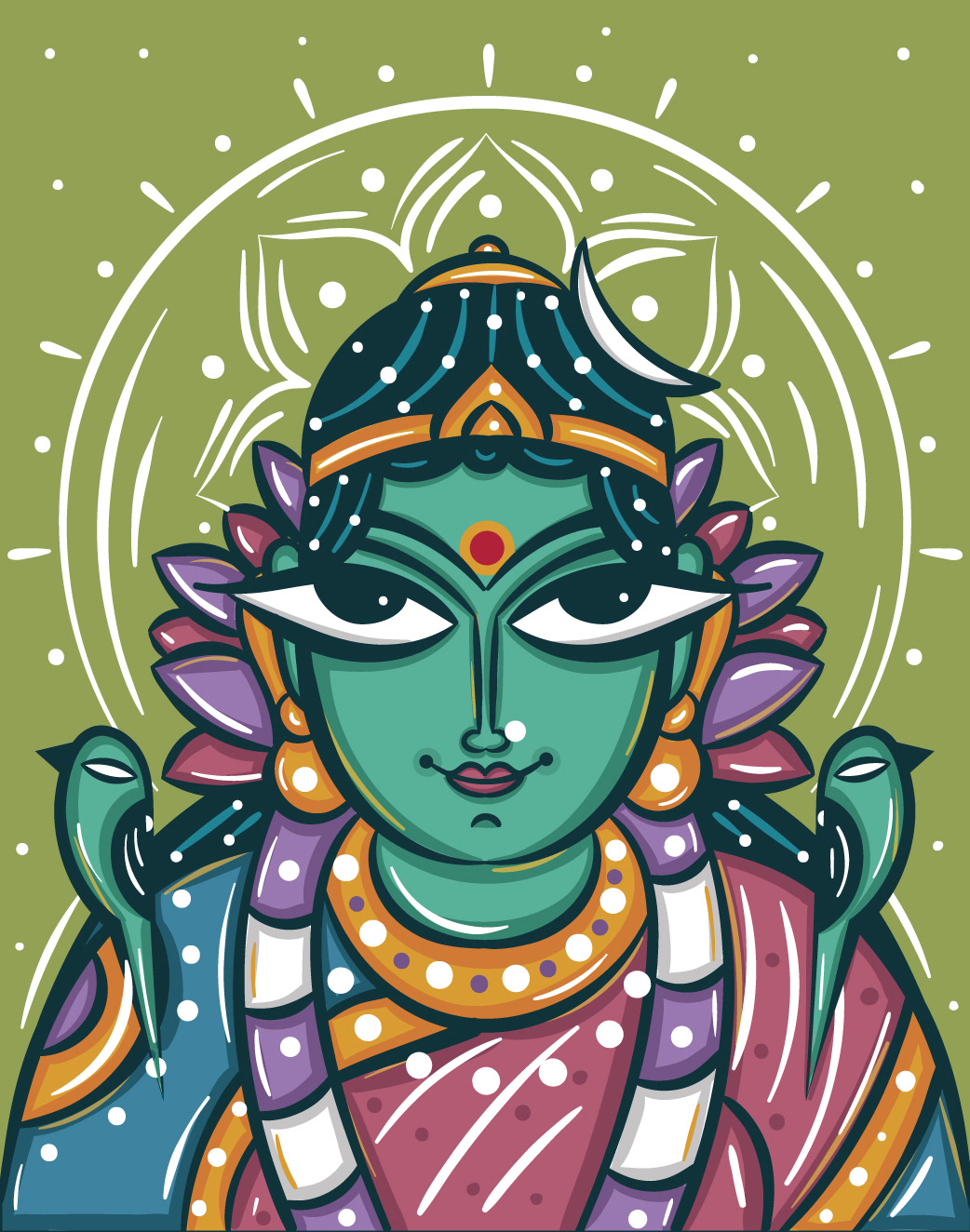
Matangi the Tantric form of Goddess Saraswati is associated with knowledge, wisdom, and creativity. She represents the divine self that remains after everything dies. In addition, Matangi embodies the power of the spoken word as an expression of thoughts and the mind, as well as the power of listening and grasping speech to convert it back to wisdom and thought. According to a hymn in the Maha-Bhagavata Purana, her grace can help control one's foes. The Tantrasara says that reciting her mantra, meditating on her form/yantra, and performing her ritual worship give one the power to control people and make them attracted to oneself. The Purashcharyarnava says that pleasing the goddess allows her to answer all your questions by whispering in your ear.
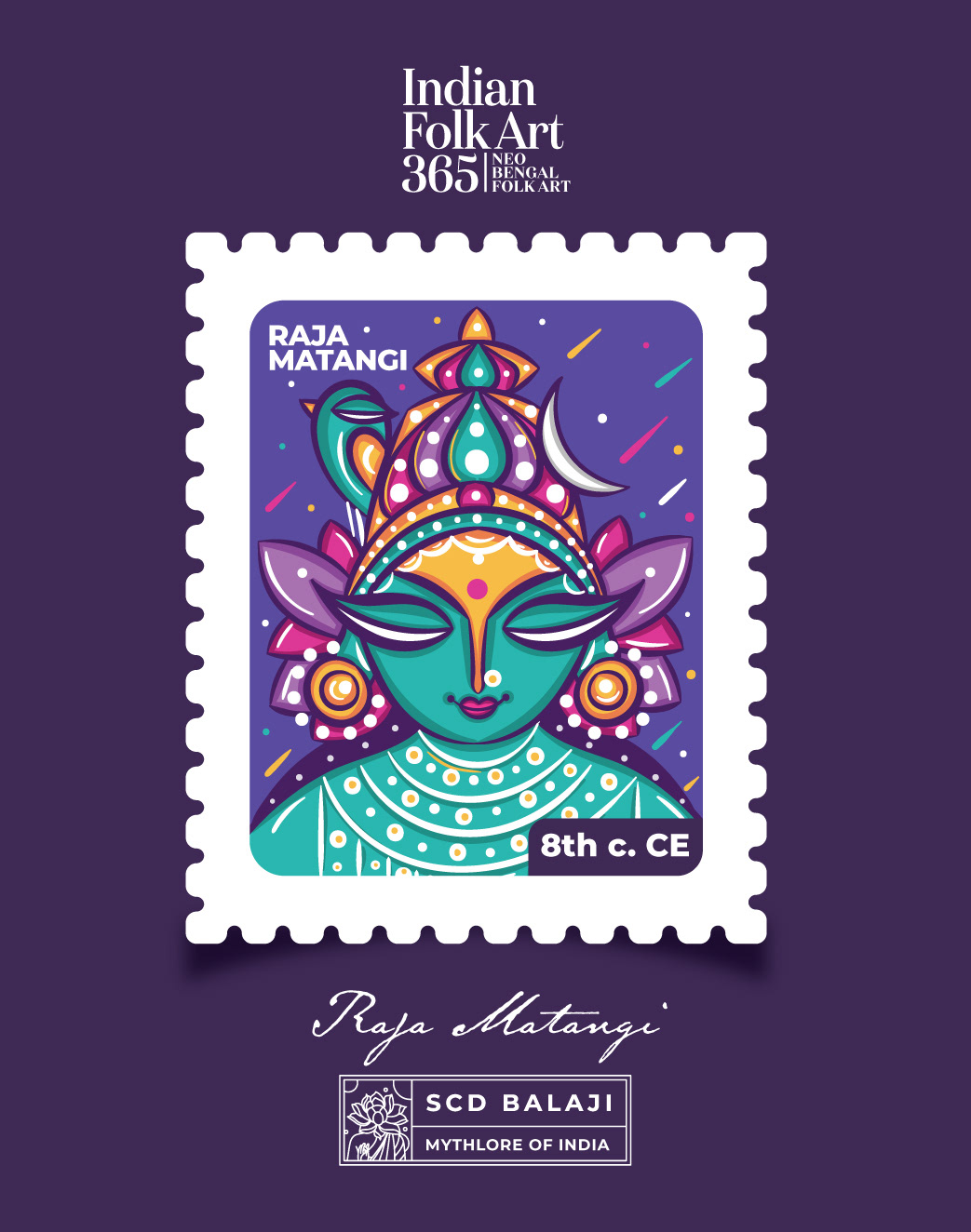
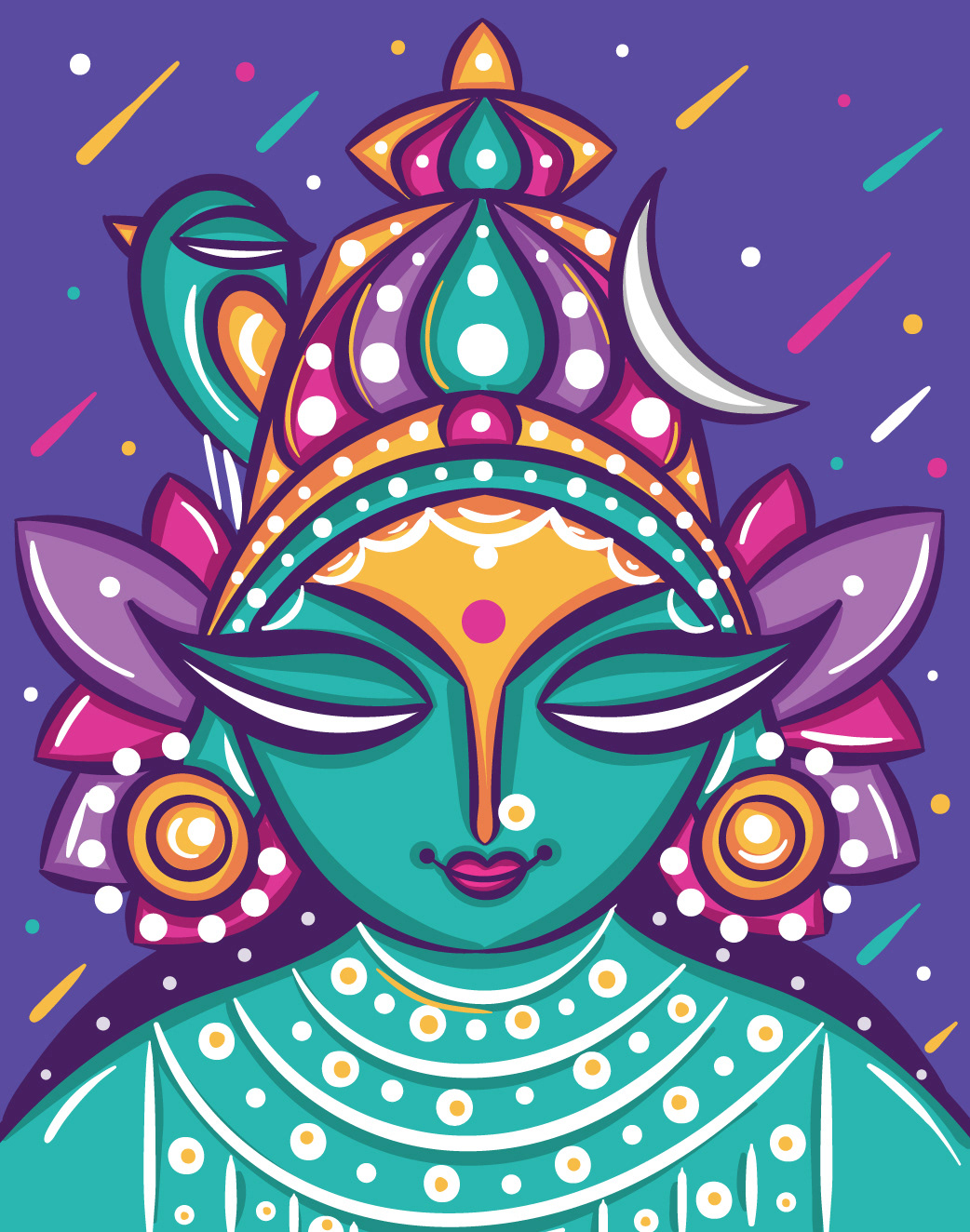
Raja Matangi is a Hindu goddess associated with knowledge, speech, learning, and the arts. She is considered a higher form of the goddess Matangi and belongs to Cosmic Mother / Emperor Lalita Tripura Sundari's Cosmic court. As a minister of Goddess Tripura Sundari, Raja Matangi guides spiritual seekers on their path to self-realization and is associated with inner knowledge, speech, learning and the creative arts.
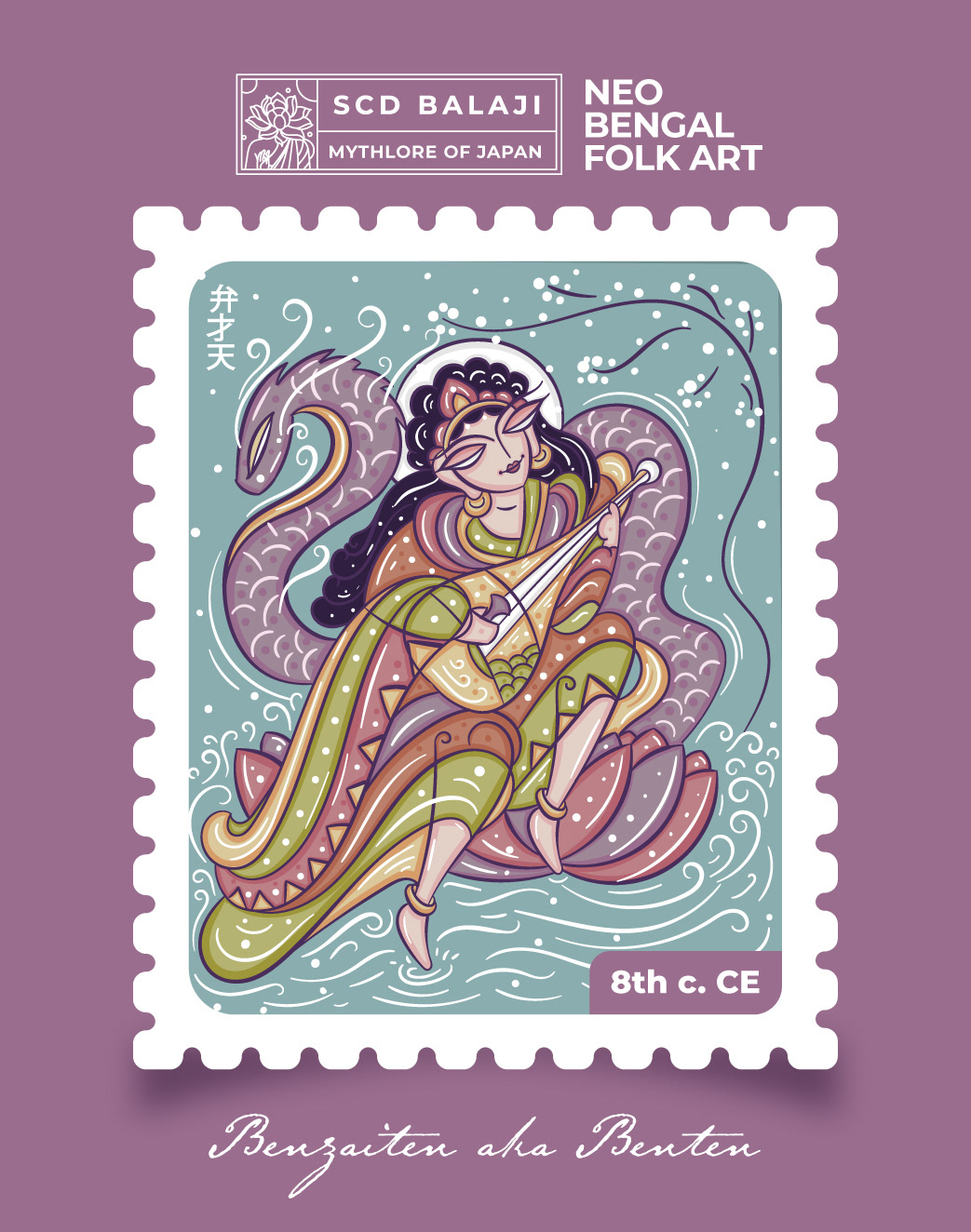
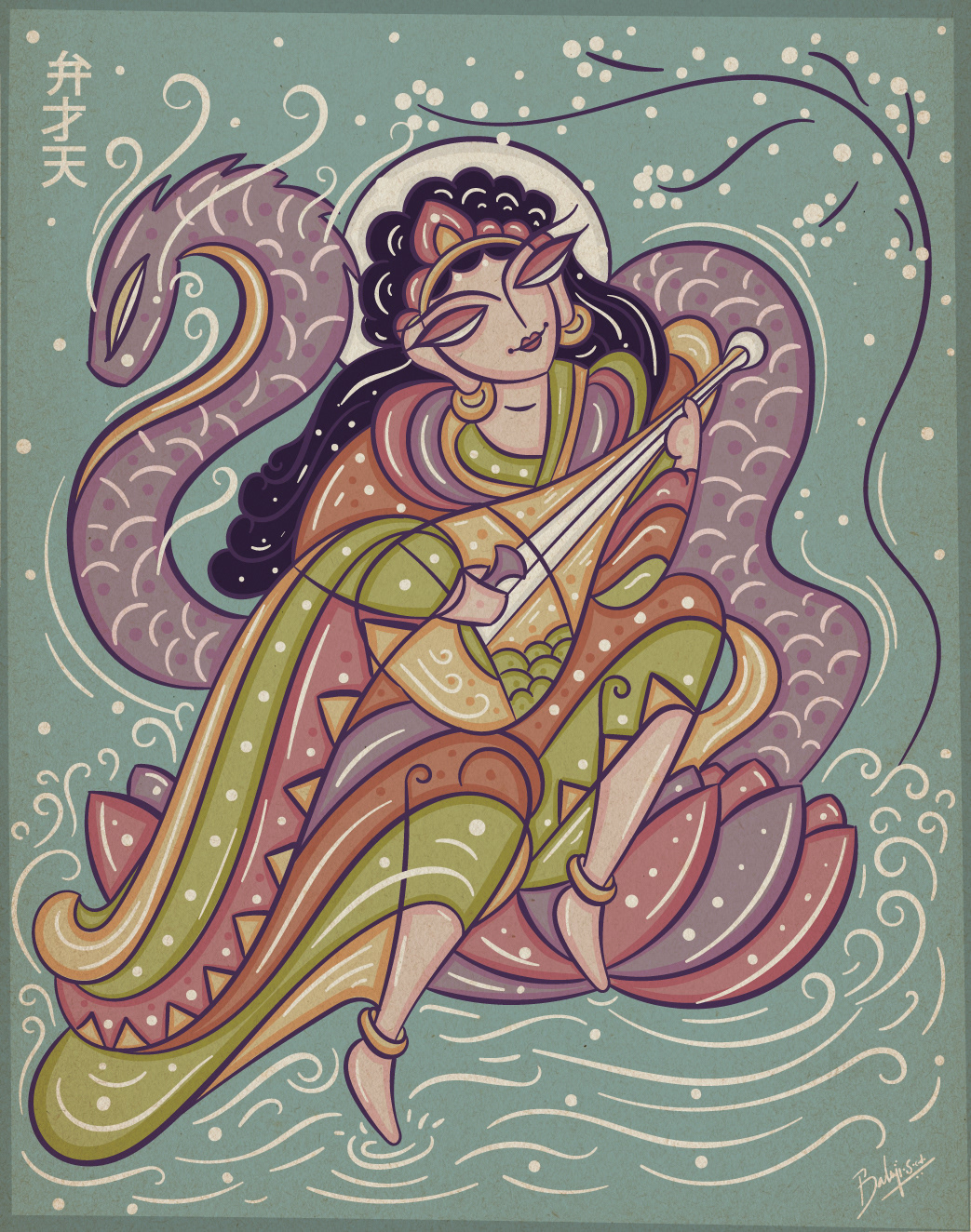
When Buddhism was adopted in Japan various Hindu deities were assimilated into the Buddhist pantheon and adapted to fit the new religious context. In Japanese folklore Benzaiten is one of the Seven Lucky Gods (Shichifukujin) and is the patron goddess of knowledge, water, wealth, speech, eloquence, arts, music, and beauty. She supports and protects artists, writers, and musicians, and is often depicted with a biwa, a traditional Japanese lute.
Benzaiten is a Japanese goddess with roots in Hinduism's Matangi. She embodies the blessings of speech, art, learning, and wealth, with traits from the warrior goddess Kali and the goddess of wealth, Laxmi. Although Benzaiten is sometimes confused with Saraswati due to similar depictions, she is actually the goddess of wisdom, wealth, and courage and is considered an aspect of Matangi.
Benzaiten Rules or Goddess of everything that flows, Water, time, words, speech, eloquence, music and knowledge. She is also the protector of artists, dancers, musicians and arts in general. As a water goddess, the companions of Benzaiten are typically a white snake or a sea dragon.
Benzaiten is a Japanese goddess with roots in Hinduism's Matangi. She embodies the blessings of speech, art, learning, and wealth, with traits from the warrior goddess Kali and the goddess of wealth, Laxmi. Although Benzaiten is sometimes confused with Saraswati due to similar depictions, she is actually the goddess of wisdom, wealth, and courage and is considered an aspect of Matangi.
Benzaiten Rules or Goddess of everything that flows, Water, time, words, speech, eloquence, music and knowledge. She is also the protector of artists, dancers, musicians and arts in general. As a water goddess, the companions of Benzaiten are typically a white snake or a sea dragon.

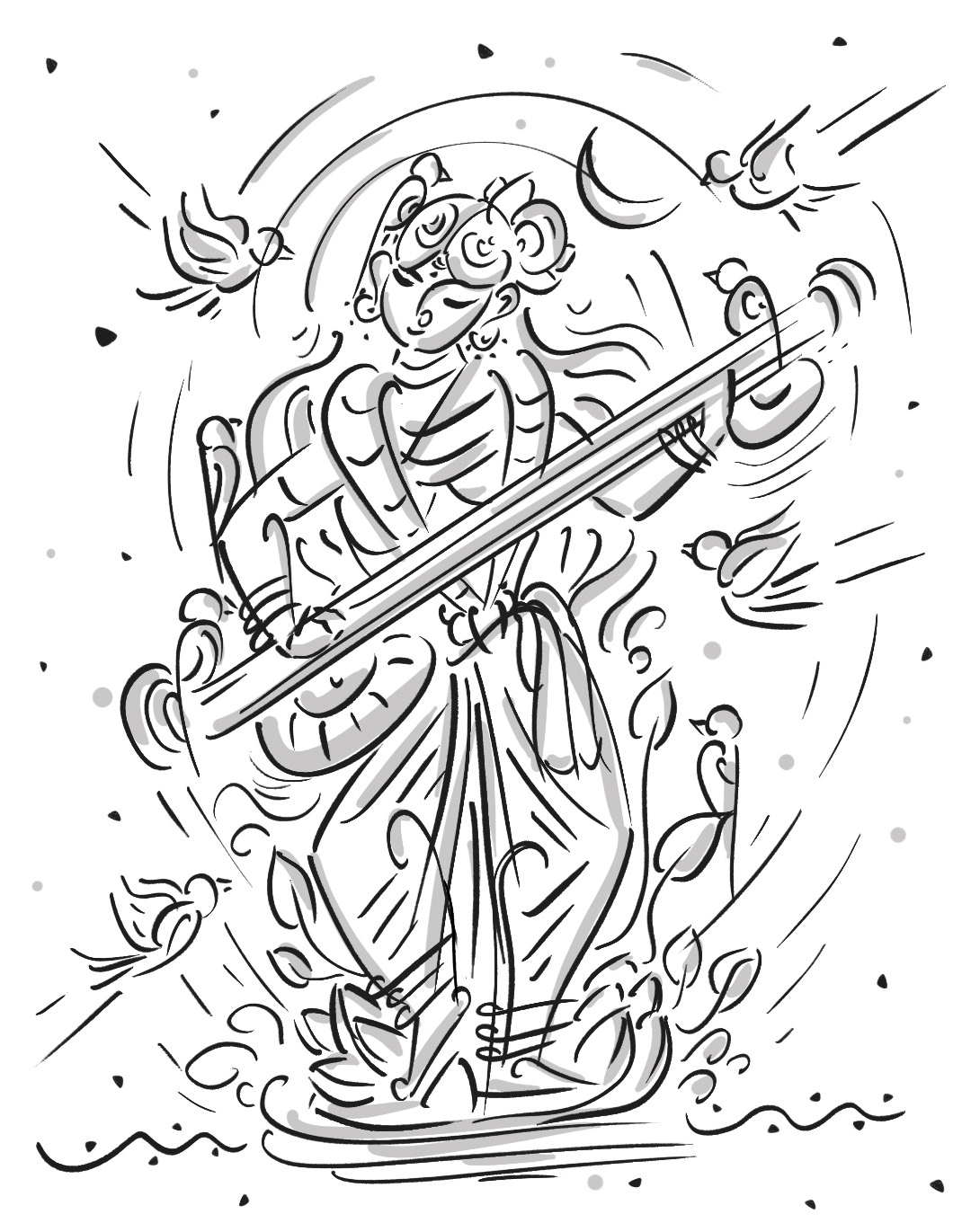
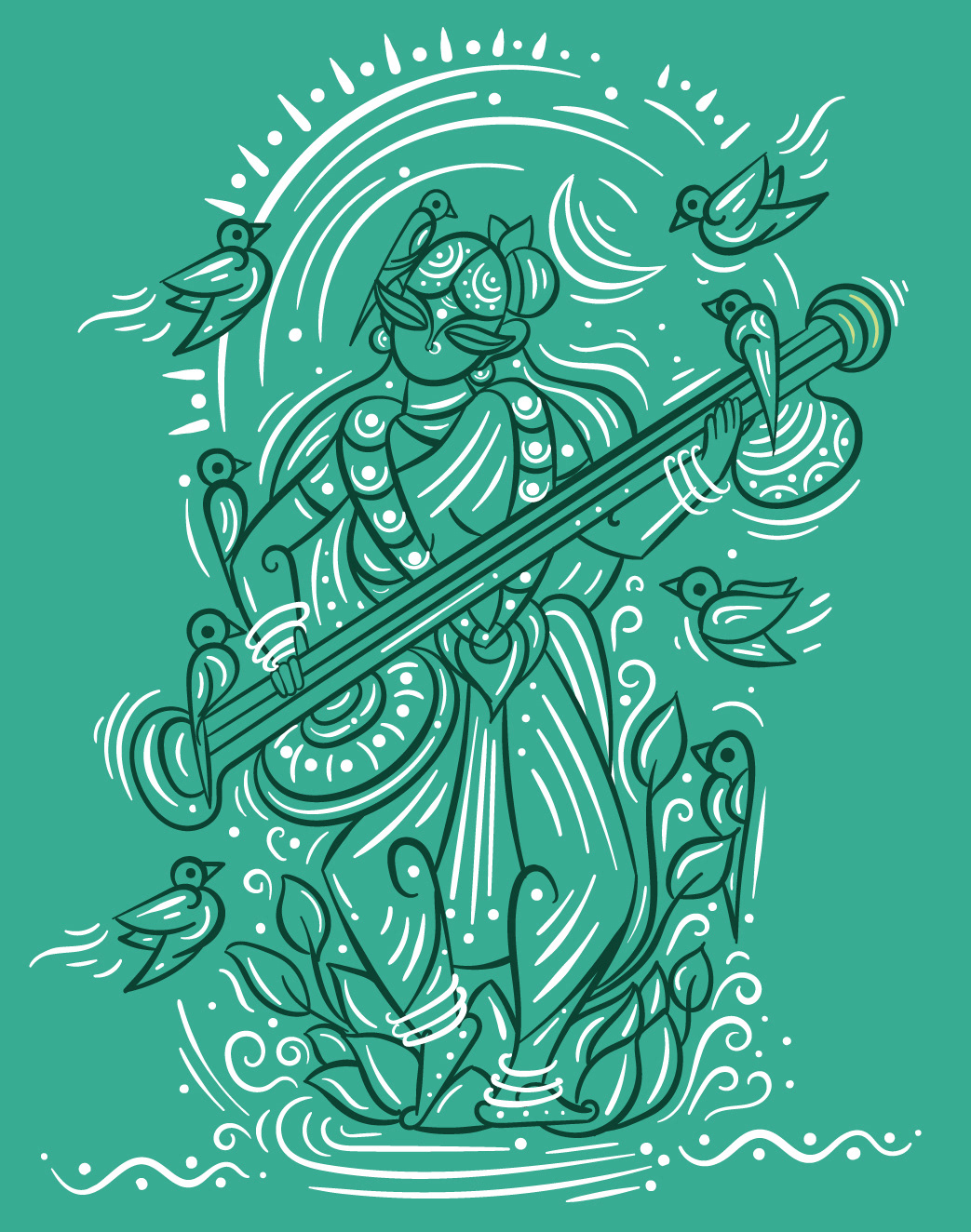
Shyamala Goddess Doodle, Sketch and Inking
Kalidasa, the greatest poet of ancient times, born in city of ujjain, was a woodcutter who was tricked into marrying the proud Princess Vidyottama by the courtiers. However, Vidyottama soon realized that Kalidasa was illiterate and foolish and sent him out of the palace. The woodcutter locked himself in the inner sanctum of a temple until Goddess Kali made him wise. After she blessed him with transcendent wisdom, his first tribute prayer to her was the Shyamala Dandakam.
At the time, the woodcutter was unaware of any other dimensions of Kali, but Kali revealed her Matangi dimension to him. Matangi combines the motherly Parvathi, the wise Sarasawathi, and the goddess of wealth, Lakshmi. Matangi gave the woodcutter all 16 types of wealth and wisdom, transforming him into Kalidasa. In Shyamala Dandakam, Kalidasa described everything he saw during his transcendent transformation.
Thus, Shyamala Dandakam is the birth of the Goddess Shyamala, Matangi herself.
Matangi is a divine dimension of the goddess mother, incarnated for bestowing blessings related to education, speech and artistic abilities. She especially favours those treated as outcasts and mediocrities, like the woodcutter who became Kalidasa.
